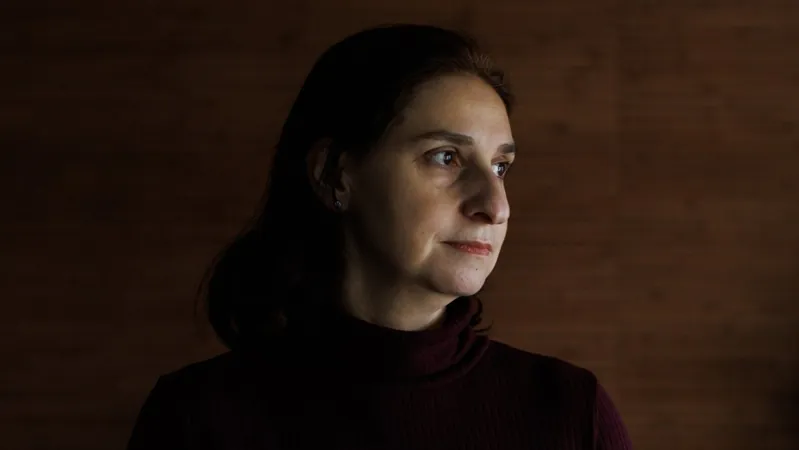
A Year of Heartache: How Palestinian Canadians are Coping with the Ongoing Crisis in Gaza
2024-10-05
Introduction
As the one-year anniversary of the tragic events of October 7, 2023, looms, many Palestinian Canadians continue to grapple with overwhelming anxiety and grief due to the ongoing war in Gaza.
Personal Experiences of Loss
Fedaa Nassar, a 34-year-old lab technician residing in the Ottawa area, reflects on how even a simple phone call incites a wave of dread within her. 'I’ve grown to hate phone calls,' she confides, fearing that each notification could bring news of loss about her family members still living in the beleaguered territory.
Since she immigrated from Gaza in 2018, Nassar’s life has taken a profound turn. She recalls sleepless nights filled with worry, checking multiple times each night to ensure the safety of her loved ones: 'I wake up three to four times during the night to check if they're still alive.' The anguish intensified after the militant group Hamas launched a cross-border attack that left over 1,200 Israelis dead, prompting Israel to officially declare war on Hamas. This conflict has resulted in devastating consequences, with local health officials estimating more than 41,000 Palestinian lives lost in the past year, disproportionately affecting women and children.
The Humanitarian Crisis
In addition to widespread destruction, disease and famine have become rampant in Gaza, leading to a humanitarian crisis that is difficult to comprehend. Nassar’s family has faced unimaginable hardship, having been displaced seven times, and her heart breaks as she recounts losing friends in the violence. One of her closest companions has been trapped under rubble, still unaccounted for: 'My friend and her two sons — still under the rubble,' she says sorrowfully.
Living with Constant Stress
Another voice echoing this trauma is Reem Sultan, a pharmacist and Palestinian-Canadian from London, Ontario, who describes living in a constant state of stress. 'Oct. 7 changed us. I miss the life I had before that day,' she says, revealing that this new reality has compelled her to rely on medications to manage her anxiety and insomnia. Sultan shares the devastating news of her cousin's death, which she discovered through a news report. The act of informing family members about such losses adds to her already heavy burden.
Navigating Bureaucratic Challenges
Complicating matters further is the attempt by many Palestinian Canadians to bring their relatives to Canada through a special visa program, which they describe as overly complex and bureaucratic. Ayman Oweida from Sherbrooke, Quebec, expresses his frustration as he navigates the red tape in hopes of reuniting with his uncles. 'It’s not that these applicants are rejected. It’s just that they’re in limbo,' he states, emphasizing the uncertainty facing families hoping to escape the horrors of war.
Haunting Thoughts of Loved Ones
Meanwhile, Rana Nassrawi, who managed to evacuate from Gaza with her two sons, remains haunted by thoughts of her siblings and elderly parents who were left behind. 'Every single night I'm trying to sleep, I just think that their night is different than our night,' she says, capturing the profound emotional distance and fear that now defines her existence.
Conclusion
As the year comes to a close, Palestinian Canadians confront a unique blend of heartbreak and anxiety, trying to adjust to a new normal amid the chaos. Their stories highlight a greater struggle, one that resonates far beyond borders, echoing a need for solidarity and compassion in a world too often consumed by conflict.
As we reflect on this ongoing crisis, it’s important to remember the human faces behind the headlines—like Nassar, Sultan, Oweida, and Nassrawi—who continue to navigate their grief while advocating for their loved ones trapped in a war-torn land. The situation in Gaza remains dire, and as we honor the memory of lost lives, we must also strive to raise awareness and support for those in need.









 Brasil (PT)
Brasil (PT)
 Canada (EN)
Canada (EN)
 Chile (ES)
Chile (ES)
 España (ES)
España (ES)
 France (FR)
France (FR)
 Hong Kong (EN)
Hong Kong (EN)
 Italia (IT)
Italia (IT)
 日本 (JA)
日本 (JA)
 Magyarország (HU)
Magyarország (HU)
 Norge (NO)
Norge (NO)
 Polska (PL)
Polska (PL)
 Schweiz (DE)
Schweiz (DE)
 Singapore (EN)
Singapore (EN)
 Sverige (SV)
Sverige (SV)
 Suomi (FI)
Suomi (FI)
 Türkiye (TR)
Türkiye (TR)